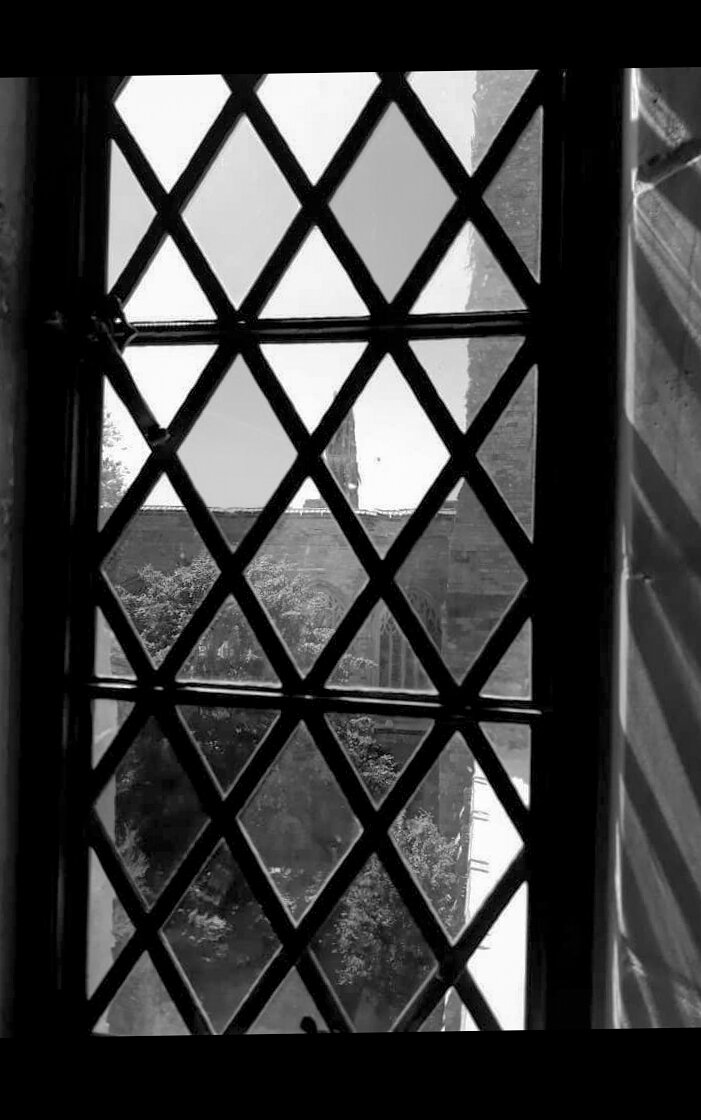
Sept 15, 2020 | By Kayla Bartsch GH ‘20
What is wonder but an apology?
Evidence of spirit flowing from soil,
a constant effulgence of that first
Utterance which produced a radiance
that is yet to be told.
Sept 15, 2020 | Shayley Martin DC ‘22
You can wonder at something—stand in awe of it, find yourself unable to explain it—and you can wonder about something—examine it, ask questions about it. Human beings can do both at the same time, which is why toddlers go through the “asking 400 questions a day” phase. Say a little kid loves pulling carrots. The way they grow underground is so mind-blowing to her that she yanks them up too early, just to marvel at them. She also asks constant questions: Why are they orange? How do the roots grow if they can’t see the sun?
Sept 15, 2020 | Raquel Sequeira TD ‘21+.5
The world always darkens before a storm. Not just the sky, but the air itself, as if someone has flipped the switch for dusk too early. Every blade of grass seems to inhale with excitement and fear. For me, that excitement and fear is partially a memory: of a violent wind sweeping from the yellow sky into the New Haven streets as raindrops begin to fall on me and the boy beside me; of darting into the library just as a tree branch crashes behind us; of my heart racing like the wind and my mind crackling like the lightning and every word I say filling the air between us like a cloud ready to burst.
Sept 15, 2020 | Jadan Anderson MC ‘22
It might seem a bit absurd, given the dire situation of the nation and the greater world, to put out a journal themed around something so seemingly privileged. It is easy to think that wonder, in the sense of standing in awe of the beautiful, good, and enrapturing, is only afforded to those carefree with youth or leisure. Most others count it a luxury.
Sept 15, 2020 | By Sharmaine Koh SM ‘22
When D.C.’s Wonder Woman hit the box offices in 2017, it was met with remarkable enthusiasm. “Groundbreaking,” “Revolutionary,” “absolutely empowering!”: the first superhero movie with a female lead and a female director in more than a decade, the film revitalized an entertainment industry that has never been known for recognising female achievement.
Sept 15, 2020 | By Serena Puang DC ‘22+1
In 2019, members of Bethel Church implored the world to join them in asking God to raise two-year-old Olive Heiligenthal from the dead. For six days, people gathered to pray, worship, and declare resurrection power over Olive, but she never woke up.
Incidents like these and more everyday occurrences such as seemingly unanswered prayers for loved ones make it hard to trust accounts of miracles or even hope that they will come. Sometimes the seemingly unanswered prayer is waved off by the supplicant’s lack of faith. Alternatively, it is seen as proof that no higher being is listening.
Sept 15, 2020 | By Ben Colón-Emeric TD ‘22
If you wanted to build the perfect future, what would you do? When the world was brought to a screeching halt by COVID-19, there was talk of dramatic change, institutional upheaval. But how does dramatic change come about? How can we rethink the systems that shape our lives? Imagine for a moment that you have infinite resources and total control over public policy. No longer must you decide if you’re going to trust your mother to cut your hair: the decisions you make can shape anything from world governance, to education, to the direction of scientific research. What future do you choose to build, and how do you get there? I, like many people, would be heavily influenced by the genre that has focused on the future for the better part of one-and-a-half centuries: science fiction.
Sept 14, 2020 | By Bella Gamboa JE ‘22
The room in the aquarium is darkened, each tank illuminated from a hidden source. Against the artificial blue background, a thin, pale filament drifts into view and is soon followed by the billowing body of a jellyfish. Contracting slightly, filling again with water, slowly moving. Yet it lacks a brain or recognizable organs, as it fills the viewer with undeniable wonder! This creature, unconscious yet an animal still; elusive, with some species practically immortal; delicate but painful or even dangerous to the touch.
Sept 14, 2020 | By Timothy Han SM ‘22+1
Lodged at the heart of the New Testament’s first book, the first version of the Christ story one encounters, is a thorny passage about the accessibility of God. After another of Christ’s sermons via parable, the disciples ask Jesus, “Why do you speak to them in parables?”
Sept 14, 2020 | By Sharla Moody BK ‘22
Upon the first viewing, Tintoretto’s Last Supper is wholly disorienting. The painting is a conglomeration of people, color, and mystery grouped under a title that immediately ties it to da Vinci’s older, more famous depiction of the same event. But Tintoretto imagines a less formal, more enigmatic scene. Like da Vinci’s painting, Christ is still central, but the rest of the painting crowds in on all sides, overwhelming the eye and mind. There are angels! And a cat! And so many people!
Sept 14, 2020 | By Raquel Sequeira TD ‘21+.5
“If you ever wonder what you’ve done in your life, and everyone does wonder sooner or later, you have been God’s grace to me, a miracle, something more than a miracle…It’s your existence I love you for, mainly.”
– Marilynne Robinson, Gilead
Sept 14, 2020 | By Bradley Yam SY ‘20
It moves us not. Great God! I’d rather be
A Pagan suckled in a creed outworn;
So might I, standing on this pleasant lea,
Have glimpses that would make me less forlorn;
Have sight of Proteus rising from the sea;
Or hear old Triton blow his wreathèd horn.
– Wordsworth, The World is Too Much With Us
With a pithy sestet Wordsworth summarizes the wonder of the wilderness wrapped in mythological glory: Proteus rising from the sea, Triton blowing his horn. Wordsworth wrote during the Industrial Revolution when the divisions between the civilized city and the natural wilderness became sharply defined.
Sept 14, 2020 | By Daniel Chabeda ES ‘22
The natural world is beautiful. On a grand scale, the mountains arch toward the sky in their millennia-long and mile-high morning stretch. On the smallest scale, quantum theory invites us into a nanoscopic world where particles can teleport (quantum teleportation), exist in multiple places at once (quantum superposition), and physically pass through other objects (quantum tunneling). The most powerful microscopes in existence today, Scanning Tunneling Microscopes, are able to clearly resolve individual atoms to show us that even the quantum world is visually stunning.













